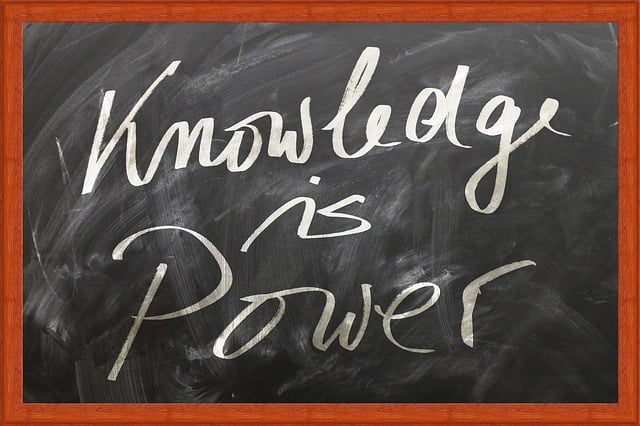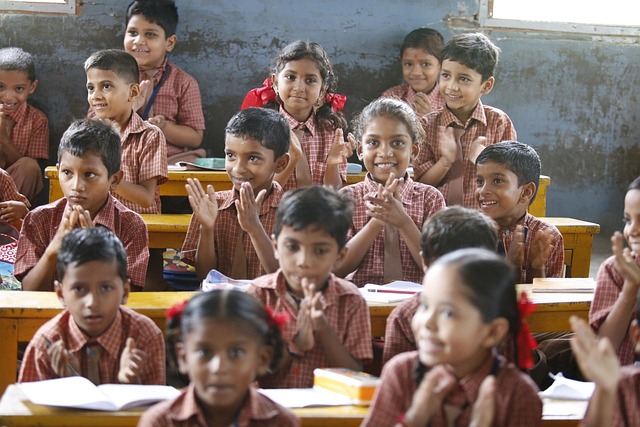Karachi's educational landscape is diverse, with private and public schools serving various socio-economic groups. Revised systems integrating technology, student-centric learning, and comprehensive evaluation methods have improved academic performance, fostering critical thinking, creativity, and problem-solving skills. Data-driven analysis identifies trends and guides decision-making, while Key Performance Indicators (KPIs) track progress across institutions. Innovative assessment strategies like project-based learning and adaptive testing have shown success. The future focuses on leveraging data analytics, collaboration, and holistic development to enhance educational outcomes in Karachi.
In Karachi, student performance analysis is crucial for understanding educational dynamics within the city’s diverse learning landscape. This article explores the impact of revised systems on academic outcomes in Karachi, offering a contextual overview of student performance. We delve into data-driven insights, highlighting key performance indicators and successful implementation strategies. By examining these aspects, we aim to empower educators and policymakers with tools to enhance learning experiences for students in Karachi and beyond.
- Understanding Student Performance in Karachi: A Contextual Overview
- The Impact of Revised Systems on Educational Outcomes
- Data-Driven Analysis: Unlocking Insights from Student Records
- Key Performance Indicators: Tracking Progress and Identifying Challenges
- Case Studies: Successful Implementation of Revised Assessment Strategies
- Future Directions: Continuous Improvement for Enhanced Learning Experiences
Understanding Student Performance in Karachi: A Contextual Overview

Karachi, as Pakistan’s economic powerhouse and a bustling metropolis, presents a unique landscape for understanding student performance. The city’s diverse educational ecosystem, ranging from prestigious private schools to public institutions serving densely populated areas, offers a rich context for analysis. Here, academic achievement is influenced by various factors, including socio-economic status, access to quality education, and the city’s vibrant yet challenging environment.
In Karachi, students’ performance reflects not just their innate abilities but also the resources available to them. The city’s stark contrasts, from upscale neighborhoods with top-tier educational facilities to crowded public schools in low-income areas, underscore the importance of contextual understanding. This overview highlights the need for tailored interventions and policies that cater to the unique needs of Karachi’s student population, ensuring equitable opportunities for academic success.
The Impact of Revised Systems on Educational Outcomes

In Karachi, the introduction of revised education systems has had a profound impact on student performance and overall educational outcomes. These new systems, designed to modernise teaching methods, have led to significant improvements in academic achievement. By implementing innovative pedagogical approaches, such as integrating technology into classrooms and promoting student-centric learning, the revised systems cater to diverse learning styles and enhance engagement. As a result, students in Karachi are increasingly demonstrating improved critical thinking skills, higher levels of creativity, and better problem-solving abilities.
Furthermore, the emphasis on comprehensive evaluation methods has contributed to a more nuanced understanding of student progress. This shift from traditional assessment techniques to holistic evaluations allows educators to identify areas where individual students excel or struggle, enabling them to tailor instruction accordingly. Consequently, educational outcomes in Karachi have seen remarkable growth, with students achieving better grades and preparing more effectively for higher education and future careers.
Data-Driven Analysis: Unlocking Insights from Student Records

In the dynamic educational landscape of Karachi, embracing data-driven analysis is a game-changer for understanding and enhancing student performance. By delving into the vast reservoirs of student records, educators can unlock valuable insights that were once hidden within digital and physical files. This analytical approach leverages the power of data to identify trends, strengths, and weaknesses in academic outcomes, allowing for more informed decision-making.
For instance, a detailed analysis of student records in Karachi’s diverse educational institutions can reveal interesting patterns. It might highlight specific subjects or teaching methodologies that consistently produce better results, guiding curriculum development. Additionally, it could uncover disparities in performance among different socio-economic groups, prompting targeted interventions to ensure equal opportunities for all students. This data-driven perspective fosters a more adaptive and responsive education system tailored to the unique needs of its diverse student body.
Key Performance Indicators: Tracking Progress and Identifying Challenges

In the dynamic educational landscape of Karachi, tracking student performance is no longer a mere administrative task but a strategic imperative. Key Performance Indicators (KPIs) serve as the compass that guides educators and policymakers in understanding the strides made by students and pinpointing areas demanding improvement. These metrics not only offer a granular view of academic achievements but also highlight challenges unique to Karachi’s diverse educational ecosystem, encompassing both public and private institutions.
By closely monitoring KPIs such as attendance rates, pass percentages, and time-to-completion, educators in Karachi can identify trends that may indicate specific subjects or grade levels requiring enhanced teaching methodologies. This data-driven approach enables targeted interventions, ensuring that students receive the support they need to excel. For instance, a decline in math performance could prompt schools to implement innovative teaching strategies or provide additional tutoring, fostering a more inclusive learning environment tailored to Karachi’s diverse student body.
Case Studies: Successful Implementation of Revised Assessment Strategies

In Karachi, several educational institutions have successfully implemented revised assessment strategies, leading to notable improvements in student performance. One such case study involves a local high school that adopted a more holistic approach to assessments, incorporating project-based learning and peer evaluations. Students were tasked with creating multimedia presentations on historical events, encouraging critical thinking and creative expression. The introduction of this new assessment method not only increased student engagement but also fostered a deeper understanding of the subject matter. Teachers reported higher levels of preparedness among students, indicating a shift towards more effective learning outcomes.
Additionally, a prestigious university in Karachi experimented with adaptive testing technologies, tailoring exam questions to each student’s performance. This personalized approach resulted in improved accuracy and reduced stress for students, as assessments became more aligned with their individual learning paces. The successful integration of these revised strategies has set a benchmark for other educational institutions in the city, emphasizing the potential for innovative assessment methods to drive academic excellence.
Future Directions: Continuous Improvement for Enhanced Learning Experiences

As we look ahead, the continuous improvement of student performance systems in Karachi holds immense potential for enhancing learning experiences. One key area for focus is leveraging data analytics to identify trends and patterns in student outcomes, allowing educators to tailor instruction and support more effectively. This involves not just tracking academic metrics but also understanding non-cognitive skills development, as these aspects significantly influence long-term success.
Additionally, fostering collaboration between schools, universities, and community organizations can create a holistic ecosystem for learning. By sharing best practices, resources, and expertise, Karachi can develop innovative solutions that address systemic challenges. This collaborative approach will ensure that the city’s educational landscape evolves to meet the diverse needs of its students, ultimately driving better outcomes and preparing them for a rapidly changing world.
The analysis of student performance in Karachi, as highlighted throughout this article, underscores the significant impact of revised educational systems on improving learning outcomes. By leveraging data-driven insights and focusing on key performance indicators, educators in Karachi can navigate challenges and foster continuous improvement. The successful case studies presented offer valuable lessons for implementing innovative assessment strategies, ultimately enhancing the overall learning experience for students in the vibrant city of Karachi.
